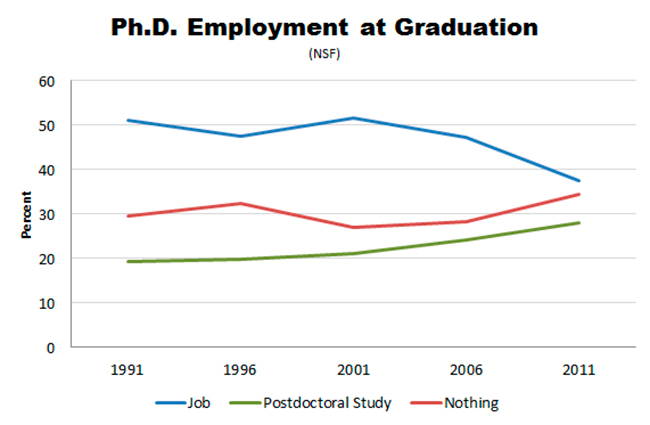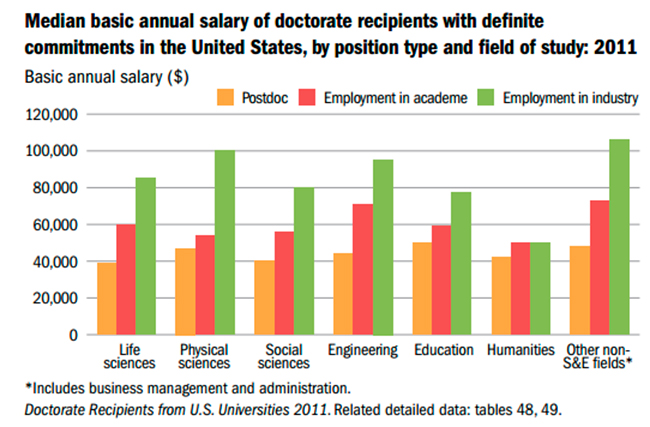
This is their last step before they embark on a journey of research and teaching. But before that is even possible, you have to obtain a Master’s degree.
A doctorate degree is all about research. You have to be comfortable with the idea that most of your time will be spent reading books, debunking hypotheses, teaching college freshmen and hanging out with colleagues that will probably make you feel ashamed of your IQ. If that sounds like your thing, you are on the right track to becoming a PhD aspirant.
Here you will find 4 important tips to consider when contemplating what Master’s programme to follow in order to be a successful PhD candidate later on.
Choose the right type of Master’s programme
Aside from the obvious personal traits necessary to thrive in an academic environment, you will also have to be prepared for the academic format.
In one of my previous posts, I explored the differences between a Master of Arts (MA) and a Master of Sciences (MSc). To summarise: “an MA gives you the skills and knowledge to be a great professional and an MSc gives you the skills and knowledge to understand your profession in great depth.”
Master of Sciences programmes are heavy on theory and research, making them the ideal choice for students who plan on pursuing a PhD afterwards. The obvious reason for this is the similarity in the teaching format. However, another important factor to consider is the fact that contrary to MA programmes which tend to focus on specialised professional skills, the MSc degree offers an understanding of the theories and models that shape entire industries (Economics, Engineering, Physics). This means that an MSc graduate will be better prepared to face the similarly vast amounts of in-depth knowledge about their particular field that the PhD will both require and provide.
Finally, you must remember that while a Master’s degree is a prerequisite for a PhD, the type of Master’s is not. It is up to each university to set the criteria for PhD applicants. Do not be afraid to choose an MA over an MSc just because you plan to pursue a doctorate degree later on.
Have specific interests in a particular topic
In order to acquire the title of “doctor” in your chosen field, you must complete a dissertation. Dissertations focus on specific topics and will generally have to bring some kind of innovative approach or idea to your professional or academic community.
Admittedly, most of you are probably quite far from this point, but when considering a Master’s programme, it is advisable that you already have an underlined interest in a specific topic within your field. Some examples of this are: Content Curation in Marketing Communications; the emergence of the BRICS countries in Macro Economics; and Angel Investment in Banking Finances. It will be much easier for you to continue your research efforts in that particular subject matter once the Master’s degree is out of the way. In fact, many students choose to explore the same or a very similar topic for both their Master’s thesis and PhD dissertation – a practice often encouraged by academic supervisors across every type of postgraduate education.
Be aware of employment risks
Like all major decisions in life, the choice to pursue a PhD is a combination of desire, ability and risk evaluation.
Although a doctoral degree does not necessarily mean that you will spend the rest of your life in a university or a think tank doing endless research, it does mean that your opportunities for employment will be influenced by this broadly accepted perception.
The current job market values applied skills, and people who have dedicated their studies to knowledge rather than practice are often underappreciated.
A survey by the National Science Foundation in the US suggests that PhD’s find it progressively harder to get a job upon graduation (right after graduating):

This graph illustrates “the entire market for Ph.D.'s, including those graduating from humanities, science, education, and other programs. The blue line tracks students who are able to get a job immediately after graduation. The green line tracks those who sign up for a post-doctorate study programme. The red line stands for the jobless (though a sliver of them are heading to another academic programme).”
This is a risk that should not be overlooked, but one that could be alleviated. A possible solution would be to choose a Master’s type and programme that will make you suitable for employment in the private sector, but still be relevant enough to allow you to follow through with your ambition to acquire a PhD at a later point. A good example is an MSc in Finance or even an MA in Marketing. It is also not uncommon that PhD holders move to MBA studies if they want to make a career change or move to managerial positions.
The good news is that the median salaries for PhD’s in fields like business management and administration are at the top of the chart.

Understand the commitment
Doctorate degrees are the last frontier of education. There is very little that you can do afterwards in terms of the classic classroom-based education, although a PhD will probably mean that you will remain close to the academic environment for the rest of your life. PhD’s last anywhere from a year or two, to five or even ten.
This is important to remember. In contrast to a Master’s degree that lasts a maximum of 2 years and can lead to either a professional or academic commitment, the PhD will nudge you decisively towards research-based work, the sciences, and the idea that you will teach others one day.
Bearing that in mind, it is best to think very carefully and be smart when choosing your Master’s programme. Be truthful to yourself and answer these questions: “Is this Master’s degree merely a step before my ultimate commitment to become a PhD” or “Am I going to take this one step at a time, get a solid Master’s degree that will allow me to work anywhere, and see what happens next”?
Or in other words, are you doing a Master’s degree just because you need it in order to get a PhD, which will commit you more one-sidedly than a Master’s or are you doing it because you want to become better in your field and increase your chances for overall employment?
Once you answer these two simple questions and think about the other points discussed in this post, you will know what Master’s degree to aim for.
Have questions or comments? Just post them below this article. We will be glad to reply.


Comments